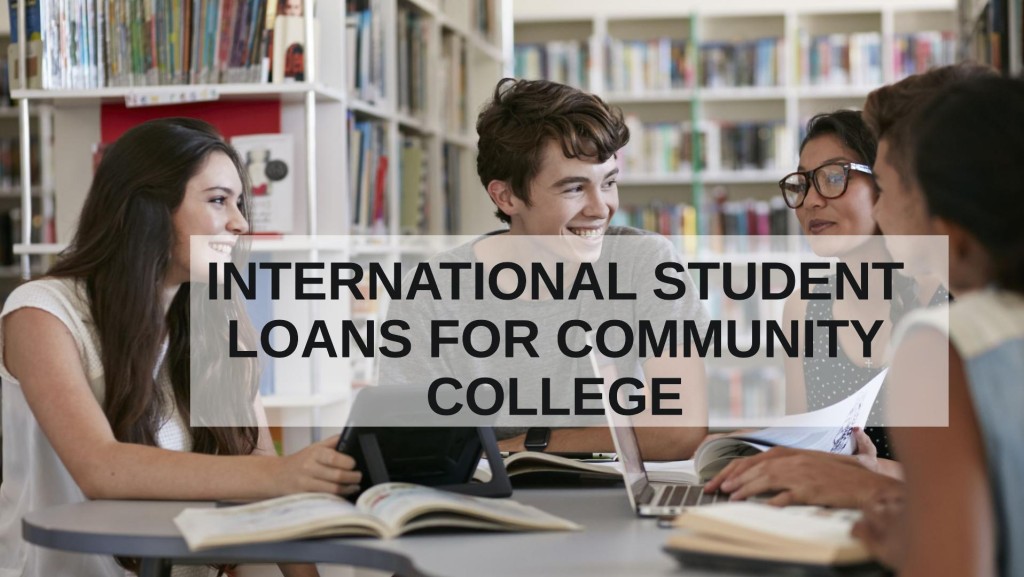Embarking on a journey of higher education is a thrilling yet challenging endeavor, especially when it involves studying abroad. For many aspiring students, Canada stands out as a prime destination, renowned for its top-tier educational institutions and vibrant multicultural environment. However, before one can set foot on Canadian soil, they must navigate the intricacies of the student visa application process. In this comprehensive guide, we will delve into the steps involved in applying for a Canadian student visa, while also exploring pertinent topics such as student loan forgiveness and education loan repayment.
Understanding the Canadian Student Visa:
Before diving into the application process, it's crucial to understand the type of visa required for studying in Canada. Most international students will need a study permit, which serves as both a visa and a permit. This document allows foreign nationals to study at designated learning institutions (DLIs) in Canada. It's important to note that a study permit is not required for short-term courses or programs lasting six months or less.
Gathering Required Documents:
The first step in the visa application process is to gather all the necessary documents. These typically include a letter of acceptance from a DLI, proof of financial support, a valid passport, and any other documents specified by the Canadian government.
Completing the Application Form:
Applicants must fill out the appropriate application form for a study permit. This can be done online through the Immigration, Refugees, and Citizenship Canada (IRCC) website or by submitting a paper application to the nearest visa application center.
Paying the Application Fee:
There is a non-refundable fee associated with processing the study permit application. The fee must be paid online as part of the application process.
Biometrics Appointment (if applicable):
Depending on the applicant's country of origin, they may be required to provide biometrics (fingerprints and photograph) as part of the application process. This involves scheduling an appointment at a designated biometrics collection center.
Submitting the Application:
Once all the required documents have been gathered and the application form is completed, it's time to submit the application. This can be done electronically for online applications or by mail for paper applications.
Waiting for Processing:
After submitting the application, there will be a processing period during which immigration officials will review the documents and make a decision. Processing times can vary depending on the volume of applications and other factors.
Receiving the Study Permit:
If the application is approved, the applicant will receive a letter of introduction along with their study permit. This document will outline any conditions attached to the permit, such as working restrictions or the need to undergo a medical examination.
Student Loan Forgiveness and Repayment:
Aspiring students often rely on student loans to finance their education, both domestically and abroad. However, the burden of student loan debt can be daunting, leading many graduates to seek loan forgiveness and repayment options. In Canada, while there isn't a blanket student loan forgiveness program like some other countries, there are avenues for assistance.
Education loan forgiveness programs may be available through provincial or federal governments, depending on the individual's circumstances and the province in which they reside. These programs typically target specific professions or sectors deemed to be in high demand, such as healthcare or education. Qualifying individuals may have a portion of their student loans forgiven in exchange for working in designated areas or fulfilling other requirements.
Financial Planning:
Developing a comprehensive financial plan is essential for international students embarking on their educational journey in Canada. This plan should encompass all aspects of student finances, including tuition fees, living expenses, accommodation costs, and incidental expenses. By carefully budgeting and forecasting expenses, students can ensure that they have adequate funds to support their studies and maintain a comfortable standard of living.
Moreover, seeking out education loan forgiveness and repayment options should be an integral part of the financial planning process. This may involve researching available programs, understanding eligibility criteria, and exploring the implications of loan forgiveness on long-term financial stability. By incorporating study loan forgiveness strategies into their financial plan, students can effectively manage debt obligations and alleviate financial stress.
Part-Time Employment:
Another strategy for managing student loans while studying in Canada is to seek part-time employment opportunities. Many international students are eligible to work part-time while pursuing their studies, allowing them to earn income to cover expenses and reduce reliance on education loans. However, it's important to strike a balance between work and academics to ensure that employment does not detract from academic performance.
Additionally, some universities and colleges offer work-study programs that provide students with on-campus employment opportunities. These programs allow students to gain valuable work experience while earning income to support their studies. By participating in work-study programs, students can enhance their resume, develop essential skills, and offset educational expenses through earned income.
Financial Aid and Scholarships:
Exploring financial aid options and scholarships is another effective strategy for managing education loan forgiveness application while studying in Canada. Many universities and colleges offer merit-based scholarships, need-based grants, and other forms of financial assistance to support students' educational pursuits. By researching available scholarships and applying for those for which they are eligible, students can reduce their reliance on education loans and minimize debt accumulation.
Maintaining Good Credit:
Maintaining good credit is essential for managing student loans effectively and accessing other financial opportunities in the future. International students can build and maintain good credit by making timely student loan repayments, keeping credit card balances low, and avoiding late payments or defaults. By establishing a positive credit history, students can improve their financial standing and qualify for favorable loan terms and other financial products in the future.
Financial Discipline and Responsibility:
Finally, cultivating financial discipline and responsibility is key to successfully managing student loans and achieving long-term financial stability. This involves setting realistic financial goals, prioritizing spending, and making informed financial decisions. By practicing frugality, avoiding unnecessary expenses, and living within their means, students can minimize debt accumulation and lay the foundation for a secure financial future.
Commonly Asked Questions and answerIs an International student loans for community college
1. Can international students apply for loans to attend community colleges? International students may not be eligible for federal loans in the U.S., but some private lenders offer international student loans for community college.
2. What are the eligibility criteria for international student loans for community college? Eligibility criteria vary among lenders but often include factors such as enrollment in an eligible program and a cosigner who is a U.S. citizen or permanent resident.
3. How can I find lenders offering international student loans for community college? Research online or consult with the financial aid office at your community college for a list of potential lenders that cater to international students.
4. Is a cosigner required for international student loans for community college? In most cases, yes, a cosigner who is a U.S. citizen or permanent resident is required to secure an international student loan for community college.
5. What if I don't have a cosigner for an international student loan? Some lenders may offer no-cosigner loans, but they typically require a strong credit history and may have higher interest rates.
6. How much can I borrow with an international student loan for community college? Loan limits vary by lender but generally cover tuition, fees, and sometimes living expenses up to a certain amount.
7. Are there any restrictions on how I can use funds from an international student loan for community college? Funds are typically intended to cover educational expenses such as tuition, fees, books, and living expenses related to attending college.
8. Do international student loans for community college require a credit check? Yes, most lenders will conduct a credit check on both the borrower and cosigner as part of the application process.
9. What is the interest rate for international student loans for community college? Interest rates vary depending on the lender, loan terms, and creditworthiness of the borrower and cosigner.
10. When do I need to start repaying an international student loan for community college? Repayment typically begins after a grace period following graduation, leaving school, or dropping below half-time enrollment.
11. Can I defer repayment of an international student loan while still in community college? Some lenders may offer deferment options for borrowers who are enrolled at least half-time, but policies vary.
12. Are there any fees associated with international student loans for community college? Some lenders may charge application fees, origination fees, or other fees, so it's essential to review the terms carefully.
13. Can I use an international student loan to attend any community college in the U.S.? Most lenders allow borrowers to use funds for any eligible institution, but it's crucial to confirm with the lender and the college's financial aid office.
14. How do I apply for an international student loan for community college? The application process typically involves filling out forms online, providing necessary documentation, and having a cosigner if required.
15. Are there any scholarships or grants available for international students attending community college? Some community colleges may offer scholarships or grants specifically for international students, so it's worth researching options through the college's financial aid office.














